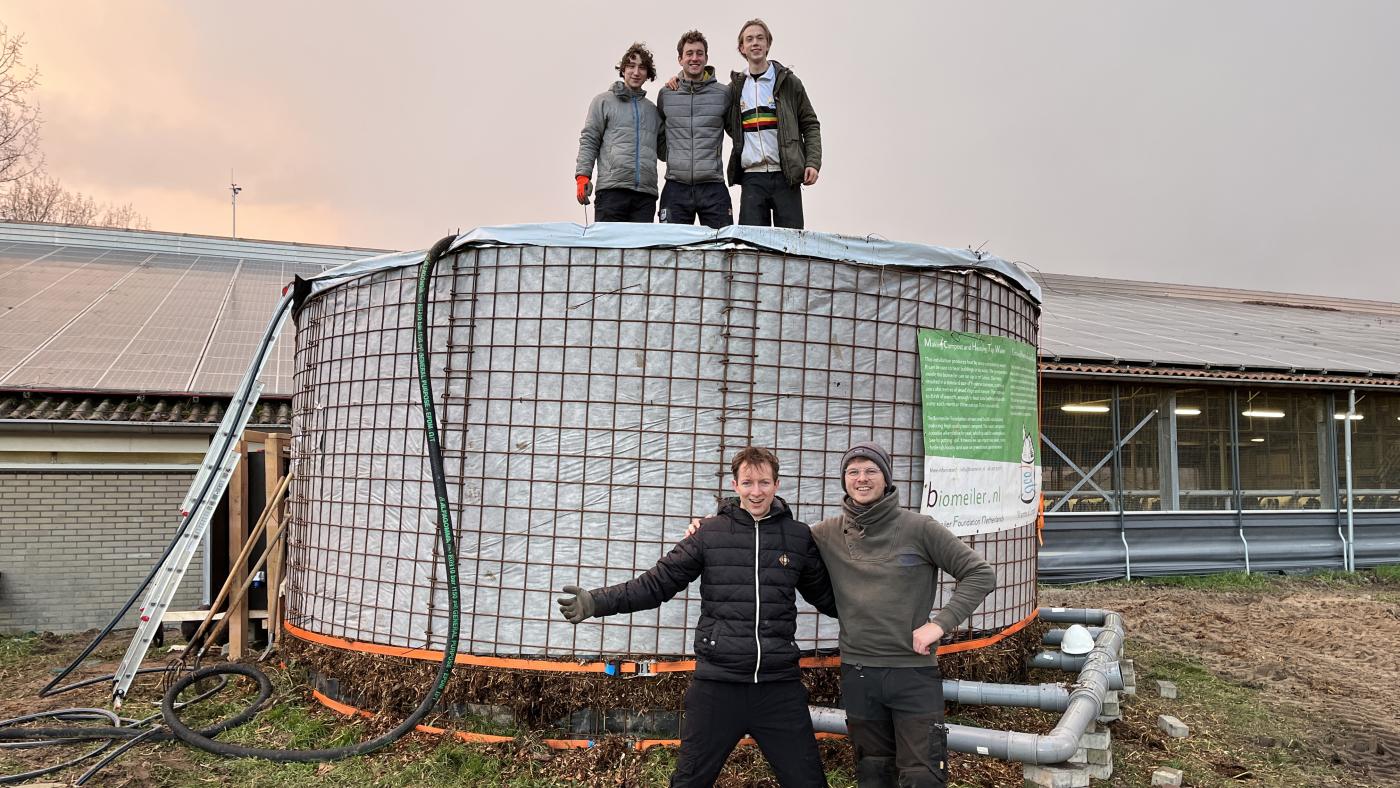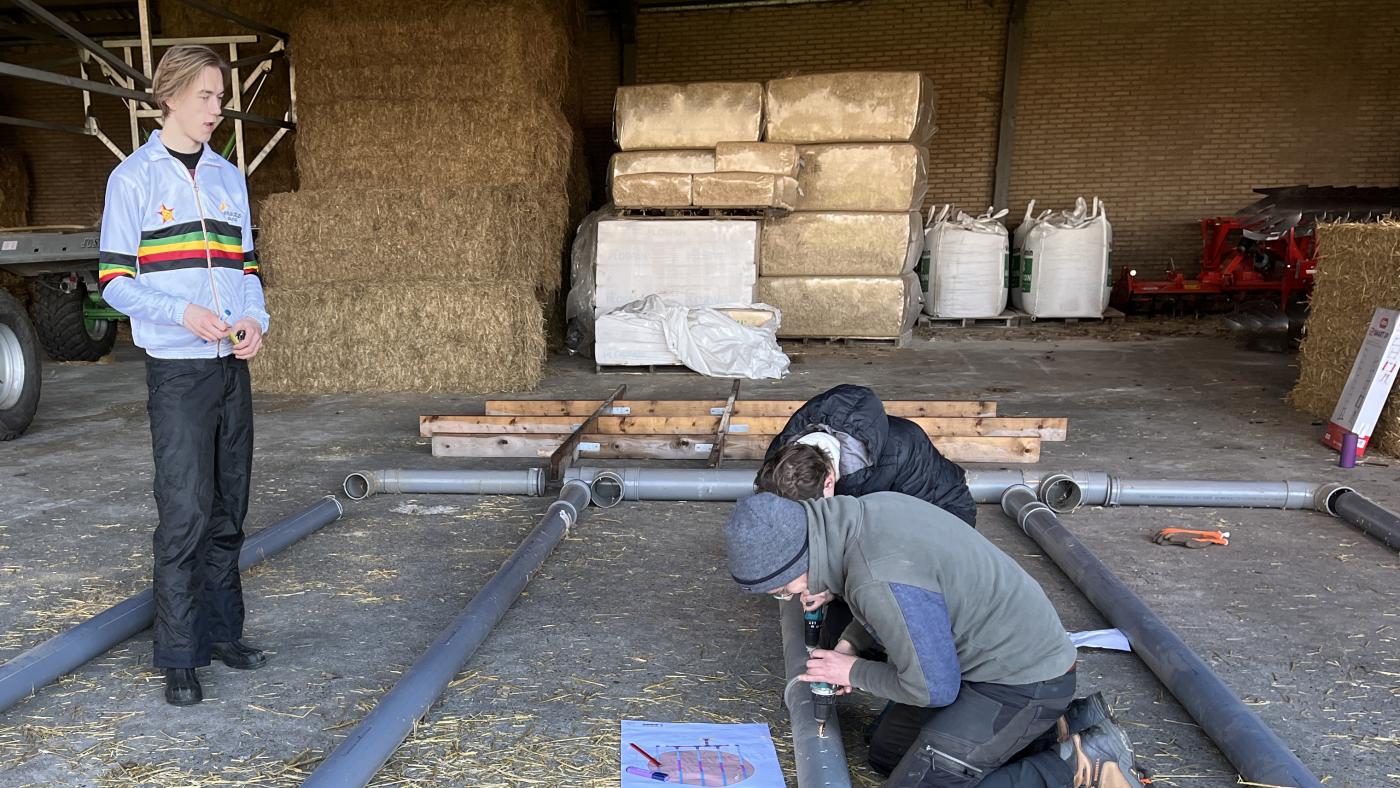'Win-win situation'
Why student Lasse erected a three-metre-high manure tank in the Utrecht Science Park

When Global Sustainability Science student Lasse saw a farmer in Germany making his own compost in a tank called biomeiler, the first thing he thought was: 'We could do this much better.'"
Biomeilers convert organic materials such as wood chips, pruning waste and manure, into compost and heat by combining micro-organisms, oxygen and water. Lasse has dedicated the past year to researching and building a better variant.
"I found out that there wasn't a lot of research on this. So, I teamed up with the Biomeiler Foundation to see how the compost tank could be made more efficient. The foundation's employees helped me with the technical aspect of the project. We discovered that we could innovate by introducing a better aeration system and a new type of heat exchanger."
The aeration system regulates the balance between moisture and oxygen. Thanks to Lasse's innovation, converting organic matter into compost with the help of bacteria has become much more efficient. The condensate heat exchanger, an idea Lasse took from a small-scale experiment in the Czech Republic, also captures heat flows escaping upwards.
Start-up
Thanks to the combination of these two innovations into one compost heating system, Lasse can now produce high-quality compost, which can contribute to a rich soil life, biodiversity and nature-inclusive agriculture. At the same time, the system creates heat for stables and greenhouses. "A win-win situation: we're reducing manure surplus and generating sustainable energy."
The biomeiler at Utrecht Science Park currently produces energy with a temperature of 60 degrees. It is used to heat several rooms in the cowshed of the Faculty of Veterinary Medicine. Soon, compost from the tank will also be used for organic farming. The biomeiler will remain in place for at least a year and a half. Lasse hopes that new experiments will be set up in the future as he also sees the economic potential of his project. "We will keep running tests so that I can set up a start-up to produce similar biomeilers for farmers and gardeners," he says.
However, the student is also planning on pursuing a Master's degree in Development Cooperation or something similar. "I don't want to commit to one project. I'm already working on the next one," he says, laughing.

Lasse watching the biomeiler getting ready. Photo: courtesy of the student.
Help
Lasse can't hide his excitement when talking about the installation of the compost tank. Many friends praised him for carrying out a project with a practical application. After all, that doesn't happen at the undergraduate level. But none of this would have been possible without help from Josh Jacobs and Caio Schuermans, two Master's students in Energy Science, and Martin Jinginger, the UU professor who served as their supervisor.
‘We visited several sites together and talked to dozens of people before we were finally able to convince the university to build a biomeiler."
The project was funded by the EU Horizon TEAPOTS project, Fund 1999 and UU's Living Labs fund. The latter fund helps UU students set up their own sustainability-related projects. Lasse: "We wouldn't have done it without this, either."